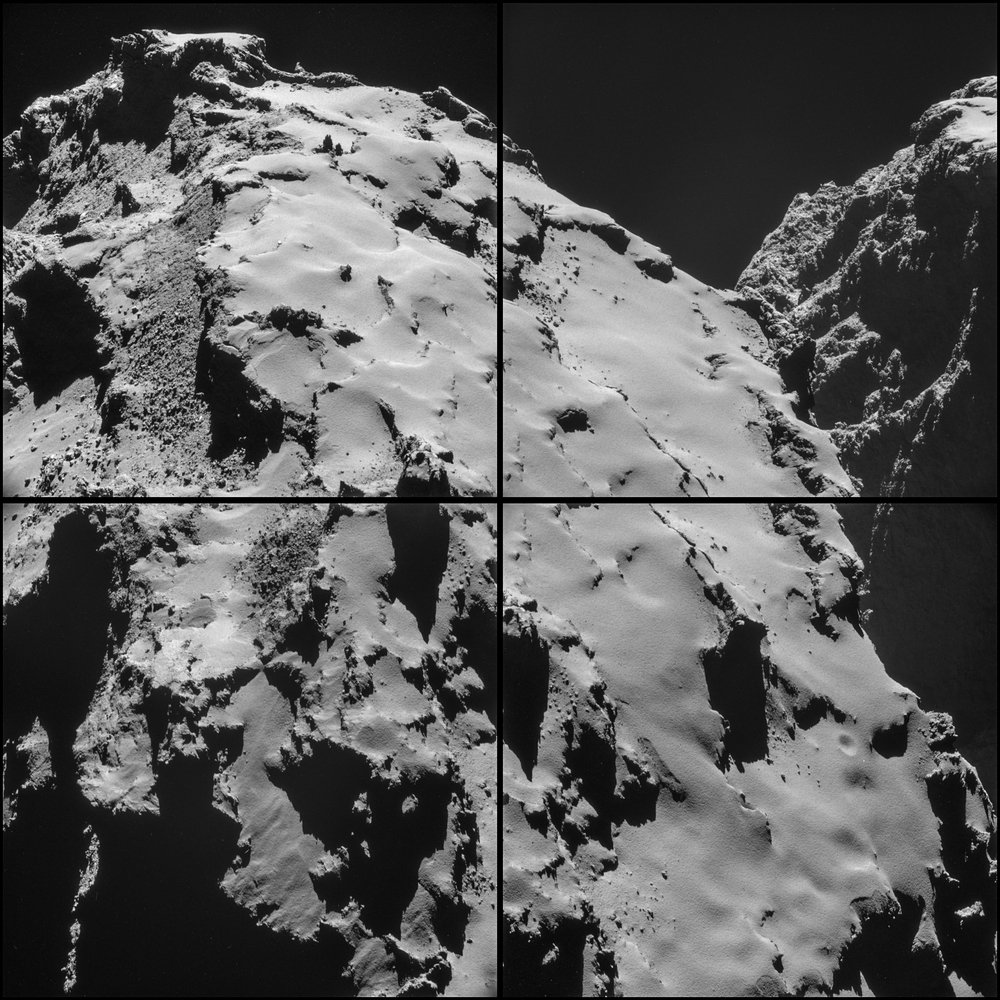Why It Matters That We’re Landing on a Comet
The European Space Agency’s Rosetta Mission is scheduled to land a vehicle on the 67P Comet tomorrow. The craft has been en route for 10 years, using successive swings around the sun to reach the comet, which travels the solar system mostly inside of Jupiter’s orbit. It made the rendezvous with the comet in August and has been orbiting it since then, waiting for tomorrow.
After a seven-hour descent, the Philae lander will touch down delicately on the 46 km² comet and begin transmitting data and images back to us, so we can learn what comets are made of. Why? Because comets might have been the vehicles for the water and raw materials that formed life on Earth.
Lots of people I know could still say “so what?” after those two paragraphs. There are many arguments both for and against space stuff, but the one that puts me firmly on the pro-space side is the argument for perspective.
Perspective-shifting technologies are critical for continued human civilization. Technological advancement itself is made possible by them. Humans have problems. We can solve problems to the extent that we can understand them. Our technological solutions are constrained by our understanding of our problems. How are we going to solve any of the problems currently looming before humanity with anything less than a planetary perspective? I think it’s worth diverting what is frankly a pretty small slice of human wealth into the development of a planet-sized perspective on our problems. The problems are clearly of that scale, and so are the solutions.
So that’s why I think it’s worth studying our local comets to see what they teach us about our planet’s origins. Besides, we’ll need the landing practice for mining asteroids.
For a deeper run-down of the Rosetta Mission, check out this post in Nature (which I found via Kottke.org). For a really crazy, exaggerated, sci-fi version of why Rosetta matters, watch this weird short film shared by the Long Now Foundation.
